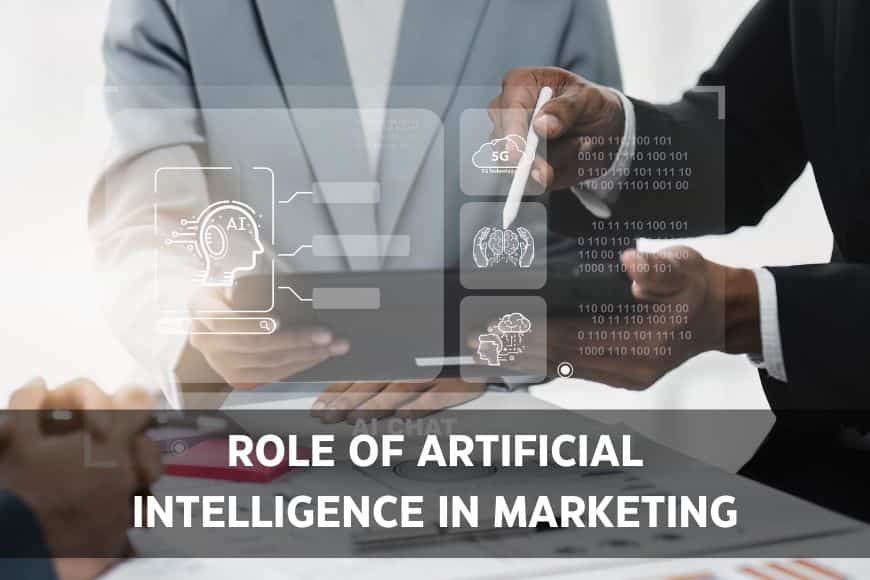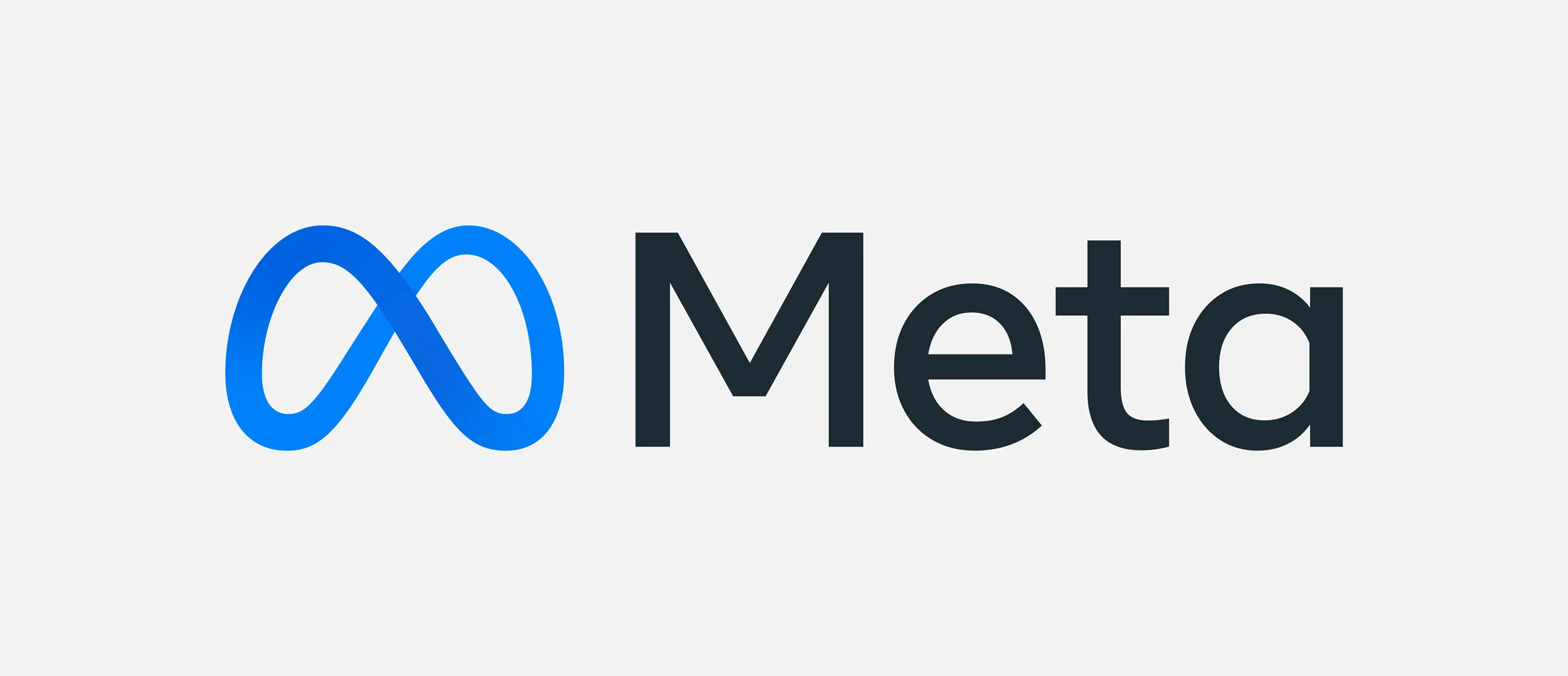What is AI Marketing? A Complete Guide

Welcome to the dynamic world of AI marketing! In today’s digital age, where innovation is the heartbeat of marketing, Artificial Intelligence (AI) has emerged as a game-changer. So, what exactly is AI marketing?
Imagine having a marketing assistant that not only understands your audience but also predicts their preferences with uncanny accuracy. That’s the power of AI in marketing. It’s not just a buzzword; it’s a transformative force reshaping how businesses connect with their customers.
In this comprehensive guide, our team of experts from the Digital Marketing Company will navigate the captivating domain of AI marketing. We will define AI marketing, emphasize its significance, and illuminate its ever-expanding role in the marketing landscape. Join us on this insightful journey as we explore the intricacies of AI-powered marketing strategies.
Definition of AI Marketing:

Artificial intelligence (AI) technologies play a crucial role in automating decision-making processes within the realm of marketing. They leverage acquired data, conduct thorough analyses, and extract insights related to economic trends and target audiences, thereby influencing marketing strategies. Many businesses and brands widely employ AI in digital marketing campaigns, particularly where rapid decision-making is essential.
The impact of AI on the digital landscape is evident through various applications, such as Google’s voice search and RankBrain, as well as Amazon’s personalized suggestions. AI possesses the capability to comprehend and analyze input and data at a profound level. In the context of identifying marketing trends, AI is increasingly taking over tasks traditionally performed by humans. Brands and marketers are turning to Artificial Intelligence and Machine Learning to optimize efficiency, saving both time and resources.
How AI is Transforming Marketing Strategies:
Artificial intelligence has become a game-changer in industries like tech and finance, revolutionizing the way digital marketers engage with their audiences. Initially met with hesitation, AI is now a staple in every brand’s marketing arsenal, recognized as a potent strategy.
Consider a scenario where a user explores a website during a sale. AI steps in to capture and track their preferences and spending habits. Later, when a similar website or brand offers discounts, AI leverages this information to market related products tailored to the user’s interests. This showcases how Artificial Intelligence in Digital Marketing serves as a valuable ally, trimming advertising costs, boosting promotions, and enhancing both revenue and production.
Importance of AI in Marketing:
Now that we’ve got a grip on what AI marketing is, let’s delve into why it’s not just a trend but a strategic necessity.
- Enhancing Marketing Efficiency:
In the dynamic realm of marketing, staying efficient is crucial. This is where AI steps in as your reliable co-pilot. Imagine automating repetitive tasks, crunching through vast datasets in a blink, and providing insights that would take human counterparts hours, if not days.
AI is the super tool that transforms marketing efficiency. It’s not about replacing human intuition; it’s about amplifying it. By handling the heavy lifting, AI frees up marketers to focus on the creative aspects, strategy, and building genuine connections with their audience.
- Impact on Personalized Customer Experiences:
Now, let’s talk about the heart of any successful marketing strategy—customer experience. The era of generic, one-size-fits-all approaches is over. AI brings personalization to the forefront.
It’s like having a marketing assistant who knows your customers better than they know themselves. Through sophisticated algorithms, AI analyzes customer behaviors and preferences, allowing you to tailor your messages and offerings with surgical precision. The result? Customers feel understood, valued, and more connected to your brand.
Whether it’s recommending products based on past purchases or crafting hyper-targeted campaigns, AI is the catalyst for creating meaningful, personalized experiences that leave a lasting impression.
In the world of marketing, where every second counts and every interaction matters, AI isn’t just a tool—it’s a strategic ally that elevates your game.
Key Components of AI Marketing
Machine Learning in Marketing:
Now, let’s unravel the magic behind AI marketing by zooming in on one of its star players: machine learning.
How Machine Learning Algorithms Contribute to Marketing Insights:
Machine learning isn’t just a fancy term; it’s the engine that powers AI’s ability to learn and adapt. In the realm of marketing, this means diving deep into data—lots of it. Machine learning algorithms crunch through mountains of information, identifying patterns and extracting insights that human minds might overlook.
Think of it as having a marketing assistant with an impeccable memory—one that learns from every customer interaction, every click, and every conversion. The result? Actionable insights that guide your marketing strategy with unparalleled precision.
Examples of ML Applications in Marketing Campaigns:
Let’s make it more tangible with some real-world example. Imagine a retail giant using machine learning to analyze purchase histories and predict what products customers might be interested in next. Or a digital ad campaign that dynamically adjusts its content based on user behavior, maximizing engagement.
Machine learning is the secret tool behind recommendation engines, predictive analytics, and even fraud detection in marketing. It’s the tool that turns data into strategy and transforms campaigns from generic broadcasts into personalized conversations.
So, as we navigate the landscape of AI marketing, keep an eye on machine learning—it’s the behind-the-scenes maestro that turns data into marketing gold.
Natural Language Processing (NLP) in Marketing:
Let’s dive into the linguistic side of AI marketing and unravel the role of Natural Language Processing (NLP).
How NLP is Used to Analyze Customer Sentiments:
NLP isn’t just about understanding words; it’s about grasping the nuances, the emotions behind those words. In marketing, customer sentiment is a treasure trove, and NLP is the key that unlocks its secrets.
Imagine having the ability to analyze customer reviews, social media comments, and feedback with the precision of a seasoned linguist. NLP does just that. It decodes the sentiments expressed—whether it’s excitement, dissatisfaction, or something in between. This isn’t just about understanding what customers are saying; it’s about understanding how they feel.
Where NLP Improves Content Creation and Engagement:
Now, let’s talk about one of the practical applications of NLP that marketers swear by: content creation.
By understanding the language your audience uses, NLP helps tailor your content to resonate on a deeper level. It’s the difference between generic messaging and content that speaks directly to your audience’s preferences and emotions.
Take chatbots, for example. NLP empowers them to engage in natural, human-like conversations. No more scripted interactions—just authentic, meaningful dialogue that keeps your audience hooked.
And when it comes to content engagement, NLP plays a crucial role in personalized recommendations. Think about the last time you received a spot-on book or movie suggestion from a streaming service—that’s NLP at work, making content recommendations based on your unique preferences.
In the realm of AI marketing, where communication is key, NLP emerges as the linguistic virtuoso, turning words into insights and engagements.
Predictive Analytics:
Now, let’s take a glimpse into the crystal ball of marketing—predictive analytics.
Role of Predictive Analytics in Forecasting Marketing Trends:
Instead of just reacting to trends, what if you could anticipate them? That’s where predictive analytics steps onto the stage.
Predictive analytics is the Sherlock Holmes of marketing, analyzing historical data to deduce future trends. It’s about going beyond the ‘what happened’ to uncover the ‘what will happen next.’ From identifying emerging market preferences to foreseeing shifts in consumer behavior, predictive analytics empowers marketers to stay ahead of the curve.
Case Studies Demonstrating Successful Predictive Analytics in Marketing:
Let’s dive into the real-world impact. Take a global e-commerce giant, for instance. By leveraging predictive analytics, they forecasted which products would be in high demand during specific seasons. The result? Efficient inventory management, satisfied customers, and a significant boost in revenue.
Or consider a subscription-based service utilizing predictive analytics to anticipate user churn. By identifying patterns that signaled disengagement, they could proactively tailor retention strategies. The outcome? A notable reduction in customer attrition.
These case studies aren’t isolated incidents. Successful businesses across industries are leveraging predictive analytics to refine their marketing strategies, enhance customer experiences, and, ultimately, drive results.
So, as we explore the world of AI marketing, remember that predictive analytics isn’t just about predicting; it’s about empowering your marketing strategy with foresight.
Personalization and Targeting:
Now, let’s dive into the realm of personalized marketing, where AI takes the spotlight.
How AI Enables Personalized Marketing Campaigns:
Personalization isn’t just a buzzword—it’s the secret sauce that transforms marketing from a broad message to a tailored conversation. Enter AI, the maestro behind personalized marketing campaigns.
Imagine understanding your audience so well that your marketing feels like a one-on-one conversation. AI turns that vision into reality. By analyzing customer data—preferences, behaviors, past interactions—AI crafts a customized experience for each individual.
Think of it as having a personal shopper who knows your taste in products, but on a grand scale. Whether it’s suggesting products, tailoring content, or delivering recommendations, AI ensures your audience gets exactly what they want, sometimes even before they know they want it.
Benefits of Targeted Advertising Using AI:
Targeted advertising has been a game-changer, and AI is the engine that drives it to new heights.
Instead of casting a wide net and hoping for the best, AI enables laser-focused targeting. It’s like having a virtual magnifying glass that identifies the perfect audience for your message. From demographics to interests, AI sifts through the data to ensure your message reaches those who are most likely to engage.
The benefits? Reduced ad spend wastage, improved conversion rates, and, most importantly, a more satisfied audience. After all, who wouldn’t prefer ads that actually resonate with their needs and interests?
As we navigate the applications of AI in marketing, remember that personalization and targeting aren’t just trends—they’re the future of meaningful, impactful marketing.
Chatbots and Virtual Assistants:
Now, let’s dive into the world of AI-powered conversationalists—chatbots and virtual assistants.
How AI-Powered Chatbots Enhance Customer Interactions:
Picture this: You visit a website, and before you can type a question, a friendly virtual assistant pops up, ready to assist. That’s the magic of AI-powered chatbots, transforming customer interactions.
AI-driven chatbots are like having a 24/7 customer service representative at your beck and call. They don’t just answer queries; they engage in natural, human-like conversations. By understanding user intent and context, these chatbots provide swift, accurate responses, ensuring a seamless customer experience.
From answering FAQs to guiding users through complex processes, AI chatbots enhance efficiency and customer satisfaction. They’re not just a technological convenience; they’re the frontline ambassadors of your brand, leaving a lasting impression on every interaction.
Examples of Successful Virtual Assistant Implementations in Marketing:
Let’s move beyond theory and into the real success stories. Take a global airline, for instance. By implementing a virtual assistant on their website, they streamlined the booking process, offering personalized recommendations based on user preferences. The result? A significant uptick in user engagement and bookings.
Or consider an e-commerce giant utilizing virtual assistants for customer support. Through AI, these assistants not only resolved queries but also proactively suggested complementary products, turning customer service interactions into sales opportunities.
These examples showcase the versatility of virtual assistants in marketing. They’re not just answering machines; they’re brand advocates, providing personalized assistance that goes beyond expectations.
As we explore the role of AI in marketing, remember that chatbots and virtual assistants aren’t just tools; they’re the digital concierges shaping a new era of customer interactions.
AI in Content Creation:
Now, let’s step into the realm where creativity meets technology—AI in content creation.
Use of AI in Generating Creative Content:
Crafting engaging content is a mix of art and science. AI adds a new dimension to this dynamic by infusing creativity with analytical precision.
Imagine having a virtual content collaborator that not only understands your brand voice but also generates ideas and drafts content seamlessly. AI in content creation does just that. It’s not about replacing human creativity but enhancing and amplifying it.
From brainstorming catchy headlines to suggesting engaging topics, AI assists in the creative process. It analyzes vast datasets to identify trends, understands audience preferences, and crafts content that resonates. The result? More efficient content creation that doesn’t compromise on quality.
Tools and Platforms that Leverage AI for Content Marketing:
Let’s get practical and explore the tools transforming content creation. Content marketers, meet your AI companions.
- Content Generation Platforms: Platforms like OpenAI’s GPT models are revolutionizing content creation. They generate human-like text, making them invaluable for drafting articles, blog posts, and even social media captions.
- SEO Optimization Tools: AI-driven tools analyze search trends, helping you optimize content for search engines. They suggest keywords, analyze competitors, and ensure your content stands out in the digital landscape.
- Social Media Management Tools: AI-powered tools help schedule posts, analyze engagement data, and even suggest the best times to share content for maximum impact.
- As we navigate the role of AI in content creation, it’s clear that these tools aren’t just automating tasks—they’re enhancing our ability to connect with audiences through meaningful, resonant content.
Challenges and Ethical Considerations
Now, let’s shine a light on the hurdles and ethical considerations that come with the territory of AI marketing.
Common Challenges such as Data Privacy and Algorithm Biases:
In the data-driven landscape of AI marketing, two giants loom: data privacy and algorithm biases.
- Data Privacy: As we harness the power of customer data, safeguarding privacy becomes paramount. Customers entrust businesses with their information, and mishandling that trust can have severe consequences. Striking the right balance between personalization and privacy remains an ongoing challenge.
- Algorithm Biases: Picture algorithms as digital decision-makers. But what if these decision-makers unintentionally favor one group over another? Algorithm biases are a real concern, especially when it comes to targeting specific demographics. Addressing and mitigating biases is a continuous effort to ensure fair and equitable marketing practices.
Potential Issues Related to Over-Reliance on AI in Marketing:
Now, let’s talk about the fine line between innovation and dependence.
- Loss of Human Touch: AI enhances efficiency, but there’s a risk of losing the human touch. Over-reliance on algorithms might lead to a disconnect with the nuanced aspects of human behavior and emotions that make marketing truly impactful.
- Unforeseen Consequences: AI operates based on learned patterns, but what if those patterns change unexpectedly? Relying too heavily on predictive analytics may lead to unanticipated consequences if the landscape shifts in ways the algorithms didn’t foresee.
As we navigate the challenges of AI marketing, it’s crucial to not only embrace innovation but also to approach it with a discerning eye and a commitment to ethical practices. Striking this balance ensures that the benefits of AI are maximized while mitigating potential risks.
Ethical Considerations:
Now, let’s navigate the intricate terrain of ethical considerations in AI marketing.
Ethical Concerns Surrounding AI in Marketing Practices:
In the digital era, where technology evolves at a rapid pace, ethical considerations take center stage. AI in marketing, with all its potential, raises crucial questions.
- Transparency: Transparency is a significant consideration, especially when it comes to customer awareness of how their data is utilized. Transparency builds trust, and ensuring that individuals understand the role of AI in shaping their marketing experiences is paramount.
- Informed Consent: As marketers, we seek to engage our audience effectively. However, the line between personalized marketing and intrusion is delicate. Obtaining informed consent becomes crucial—ensuring that customers willingly participate in the data-sharing process.
- Fair Treatment: AI algorithms make decisions, but are those decisions fair? Addressing biases, ensuring equal representation, and avoiding discriminatory practices are imperative for ethical AI marketing.
Discussing the Importance of Responsible AI Usage:
Now, let’s talk about the cornerstone of ethical AI practices—responsible usage.
- User Empowerment: Responsible AI usage puts users in control. It empowers them to make informed choices about their data and privacy. By providing users with options and control, marketers can foster a relationship built on trust.
- Continuous Monitoring and Adaptation: The ethical landscape evolves. Responsible AI usage involves continuous monitoring, evaluation, and adaptation. It’s not a one-time checklist; it’s an ongoing commitment to staying aligned with ethical standards.
- Industry Collaboration: The responsibility isn’t borne by marketers alone. Collaborative efforts across industries, academia, and regulatory bodies ensure a holistic approach to ethical AI. Sharing best practices and learning from challenges collectively strengthens the ethical foundation.
In the realm of AI marketing, ethics aren’t just a guideline—they’re the compass that guides us. By exploring these considerations and emphasizing responsible AI usage, we pave the way for a marketing landscape that is not only innovative but also ethically sound.
Conclusion:
Whether your marketing team is large or small, integrating AI marketing tools and machine learning programs can significantly boost productivity, ROI, and efficiency. These technologies also excel at handling the substantial volumes of data that your team may not have the time to tackle otherwise.
Even starting with a modest step into AI marketing, such as employing a machine learning program to craft email subject lines for your upcoming digital marketing campaign, can make a notable impact. Every incremental move toward an AI-powered future contributes to keeping your brand ahead of the competition and achieving revenue goals consistently throughout the year.












